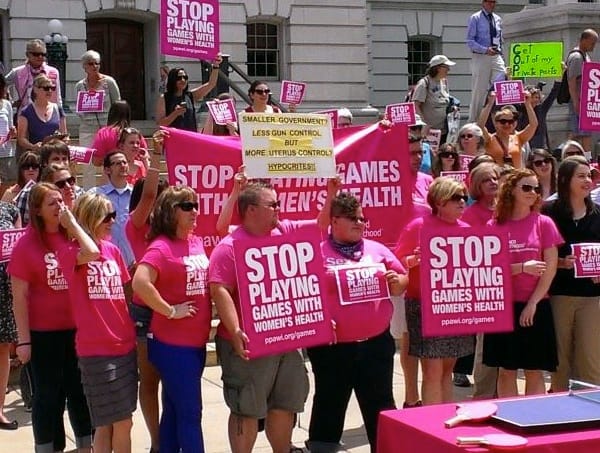New Wisconsin Abortion Law Requires Ultrasound, Follows Popular Trend

Credit: Planned Parenthood Advocates of WI

Americans remain divided over their views on abortion. The Gallup survey recently reported that about 45 percent of Americans identify as pro-choice and 48 percent regard themselves as pro-life. States across the country reflect this polarization depending on who holds control of the governorship and the state legislature.
Wisconsin is the most recent state to enter these debates and moved this past week towards further restrictions on abortion rights. The state’s Republican-led Assembly passed a law that requires women to first undergo an ultrasound before an abortion can be performed. The bill also restricts the amount of doctors eligible to perform abortions, requiring doctors who perform abortions to have admitting privileges at a local hospital.
Projected 2016 presidential hopeful, Wisconsin Governor Scott Walker, is expected to sign the bill into law.
The bill follows legislation in states around the country which make obtaining an abortion more difficult. Earlier this year, North Dakota passed a law that outlawed abortions as early as six weeks into a pregnancy or when a fetal heartbeat is detected.
Arkansas saw similar restrictions when their state outlawed abortions after twelve weeks while Kansas signed a bill into law that declared that life begins at fertilization.
This bill in Wisconsin mandates results of the ultrasound, which include images, a description of the fetus, and visualization of the fetal heartbeat be provided to the woman before she can obtain an abortion.
Together these bills signify a shift in the right’s strategies to use legislation to restrict abortions around the country.
However, the Gallup poll, which reflected the sharp, but evenly divided pro-choice and pro-life sentiment in the country, also touches upon the growing polarization over this issue.
Planned Parenthood, for example, organized a protest on the steps of the Wisconsin State Capitol, while legal organizations such as the Center for Reproductive Rights have worked to challenge these laws in court. CRR was successful in getting a judge to issue an injunction in Arkansas to block the enactment of the 12 week abortion ban law, but are still working to counter some of the other more recent legislation.
With the 2014 midterm election looming not far in the horizon, this slew of new legislation will undoubtedly take center stage in the court of public opinion as both sides attempt to appeal to their bases by moving even further away from the center on issues of reproductive rights. Wisconsin, formerly a bastion of progressivism, is just the latest casualty in the continued fights over this issue.



